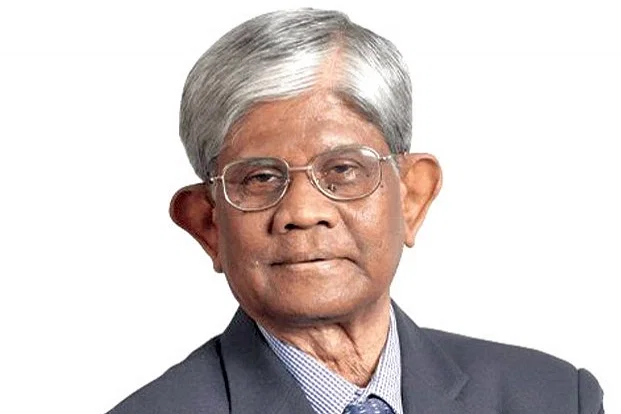News Flash

DHAKA, Oct 6, 2025 (BSS) - Adviser of the Ministries of Finance, Science and Technology Dr Salehuddin Ahmed today said that research and development must be closely linked with national development priorities.
“We are moving towards an era where scientific advances and technological applications will be the primary drivers of economic competition,” he said.
The Adviser was addressing a roundtable discussion titled "Research to Market: Strengthening Bangladesh’s Innovation Ecosystem through Academia–Industry–Research Partnerships" organized by the Ministry of Science and Technology at a city hotel here today, said a press release.
The event was attended by representatives from private and government research institutions, universities, the private industrial sector, researchers, innovators, and policymakers.
In his keynote speech Dr. Salehuddin Ahmed said, “We need to build bridges between our research, innovation, and industry.
Government investments in research should contribute to productivity, employment, and sustainable development. Therefore, timely initiatives by the ministries to enhance connectivity among research, innovation, and industry are essential, along with necessary policy and financial incentives,” he said.
The adviser also highlighted that Bangladesh has been able to utilize scientific technologies in agriculture, livestock, and fisheries at the government level, but these sectors still lag behind in other areas.
He stressed the importance of coordinated efforts among policymakers, the government, researchers, and research institutions for overall economic development, including these underdeveloped fields.
The Science and Technology Adviser also called upon scientists to focus more on new innovations and research activities.
Taking part in the discussion Commerce Secretary Mahbubur Rahman said, Bangladesh lags behind in market commercialization of research results. He emphasized the need to create opportunities to encourage and prioritize new innovations.
Speakers noted that academia–industry–research collaboration is the most effective means for innovation, technology transfer, and commercialization of research.
Such cooperation accelerates economic transformation, export growth, and sustainable development.
Citing the experiences of countries like South Korea, Germany, Singapore, and India, they said that the development of high-tech sectors in Bangladesh is possible through close collaboration among government, industries, and universities. There is a need to develop suitable models for local contexts in Bangladesh, they said.
Currently, Bangladesh’s expenditure on national research and development (R&D) is comparatively low in the region. Despite increased research publications, their application in industry remains limited, and private sector investment in research is still insufficient.
The speakers argued that joint research, policy incentives, and technological support could address the gaps.
They emphasized the importance of establishing a National Innovation Council, with a focus on ICT and AI technologies.
In his concluding remarks, the Secretary of the Ministry of Science and Technology Anwar Hossain said, “The Ministry of Science and Technology now not only oversees science-related policies but also acts as a catalyst for business competitiveness, export diversification, and growth driven by innovation.
“Our goal is to transform research into economic strength and embed innovation into daily life,” he said.
He also mentioned that the Ministry has recently taken several steps, including opening government laboratories and equipment to private researchers, promoting joint research and fellowships with private sector institutions, organizing an “Innovation Fair” in February 2026 to encourage local innovators, building global networks with overseas scientists, and establishing the Frontier Technology Cell to work on emerging technologies.
Additionally, a comprehensive database of scientists and researchers, including their publications, research fields, and interests, has been integrated into a single platform, services.most.gov.bd. Currently, the focus is on areas under the ministry, but soon, detailed profiles of Bangladeshi scientists and researchers will be documented.
Furthermore, a summary of today’s event will be prepared, and recommendations for policy reforms and institutional support will be developed shortly. A Ministry of Science and Technology–Industry–Academia Working Group is also being formed to pilot projects in promising sectors.
The roundtable was attended by leaders from various industries and top organizations, representatives from biotechnology, fisheries, and pharmaceutical sectors, vice-chancellors and pro-vice-chancellors of universities, faculty members, government officials, and members of electronic and print media.